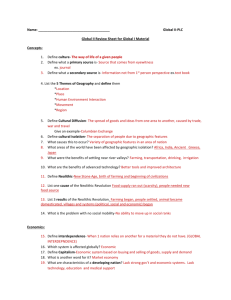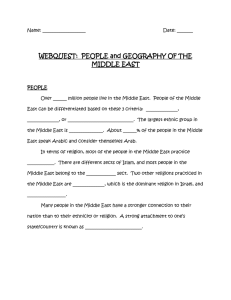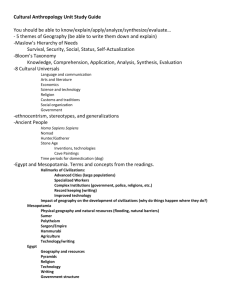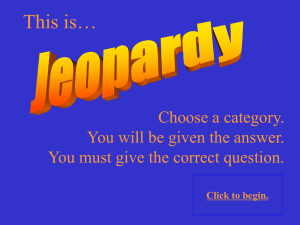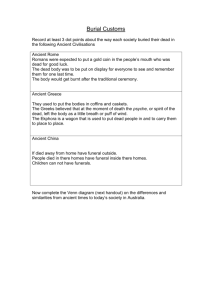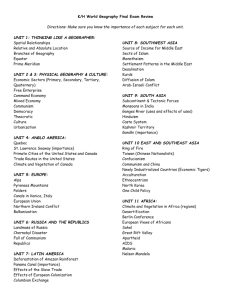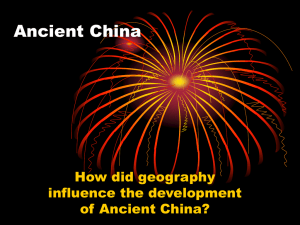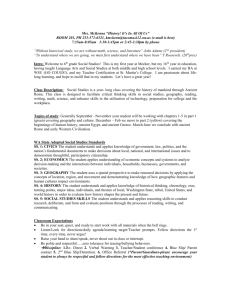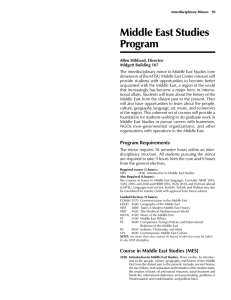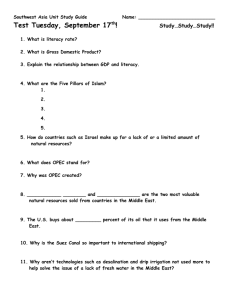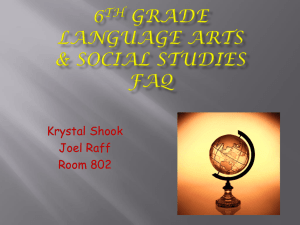Year 5 Summer Term
advertisement
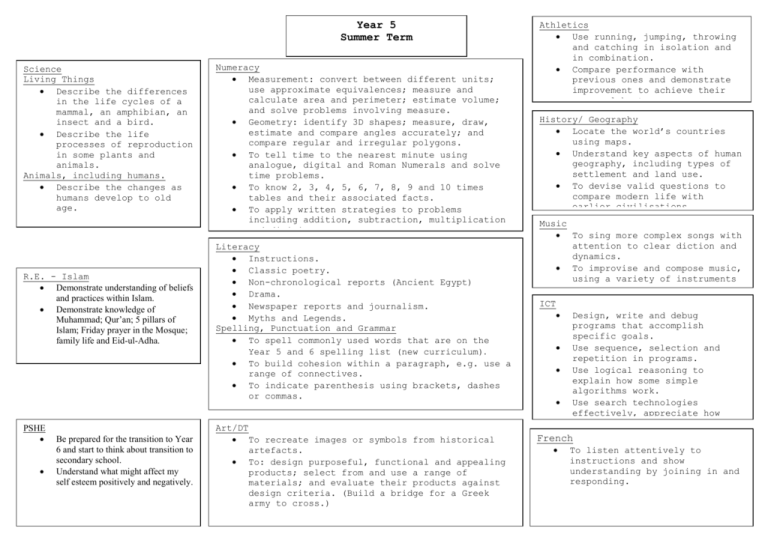
Year 5 Summer Term Science Living Things Describe the differences in the life cycles of a mammal, an amphibian, an insect and a bird. Describe the life processes of reproduction in some plants and animals. Animals, including humans. Describe the changes as humans develop to old age. R.E. - Islam Demonstrate understanding of beliefs and practices within Islam. Demonstrate knowledge of Muhammad; Qur’an; 5 pillars of Islam; Friday prayer in the Mosque; family life and Eid-ul-Adha. PSHE Be prepared for the transition to Year 6 and start to think about transition to secondary school. Understand what might affect my self esteem positively and negatively. Numeracy Measurement: convert between different units; use approximate equivalences; measure and calculate area and perimeter; estimate volume; and solve problems involving measure. Geometry: identify 3D shapes; measure, draw, estimate and compare angles accurately; and compare regular and irregular polygons. To tell time to the nearest minute using analogue, digital and Roman Numerals and solve time problems. To know 2, 3, 4, 5, 6, 7, 8, 9 and 10 times tables and their associated facts. To apply written strategies to problems including addition, subtraction, multiplication and division. Literacy Instructions. Classic poetry. Non-chronological reports (Ancient Egypt) Drama. Newspaper reports and journalism. Myths and Legends. Spelling, Punctuation and Grammar To spell commonly used words that are on the Year 5 and 6 spelling list (new curriculum). To build cohesion within a paragraph, e.g. use a range of connectives. To indicate parenthesis using brackets, dashes or commas. Art/DT To recreate images or symbols from historical artefacts. To: design purposeful, functional and appealing products; select from and use a range of materials; and evaluate their products against design criteria. (Build a bridge for a Greek army to cross.) Athletics Use running, jumping, throwing and catching in isolation and in combination. Compare performance with previous ones and demonstrate improvement to achieve their personal best. History/ Geography Locate the world’s countries using maps. Understand key aspects of human geography, including types of settlement and land use. To devise valid questions to compare modern life with earlier civilisations. Understand the achievements of Music the ancient Egyptians and the To sing more complex songs with ancient Greeks. attention to clear diction and dynamics. To improvise and compose music, using a variety of instruments and technologies. ICT Design, write and debug programs that accomplish specific goals. Use sequence, selection and repetition in programs. Use logical reasoning to explain how some simple algorithms work. Use search technologies effectively, appreciate how results are selected and Frenchranked, and be discerning in evaluating digital content. To listen attentively to instructions and show understanding by joining in and responding.

